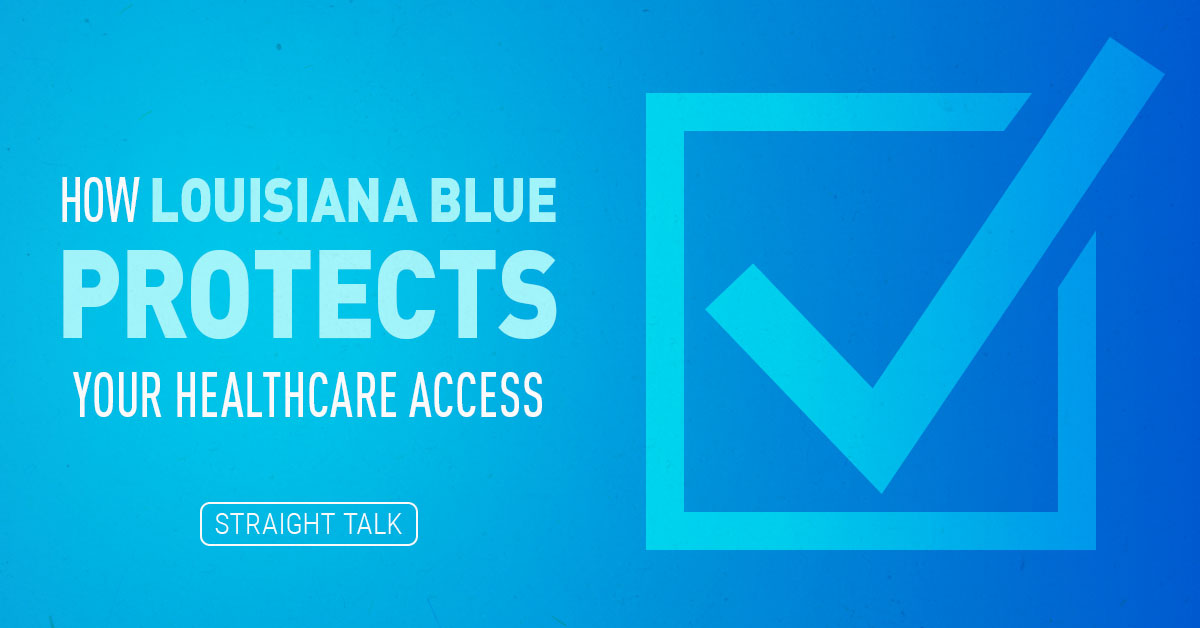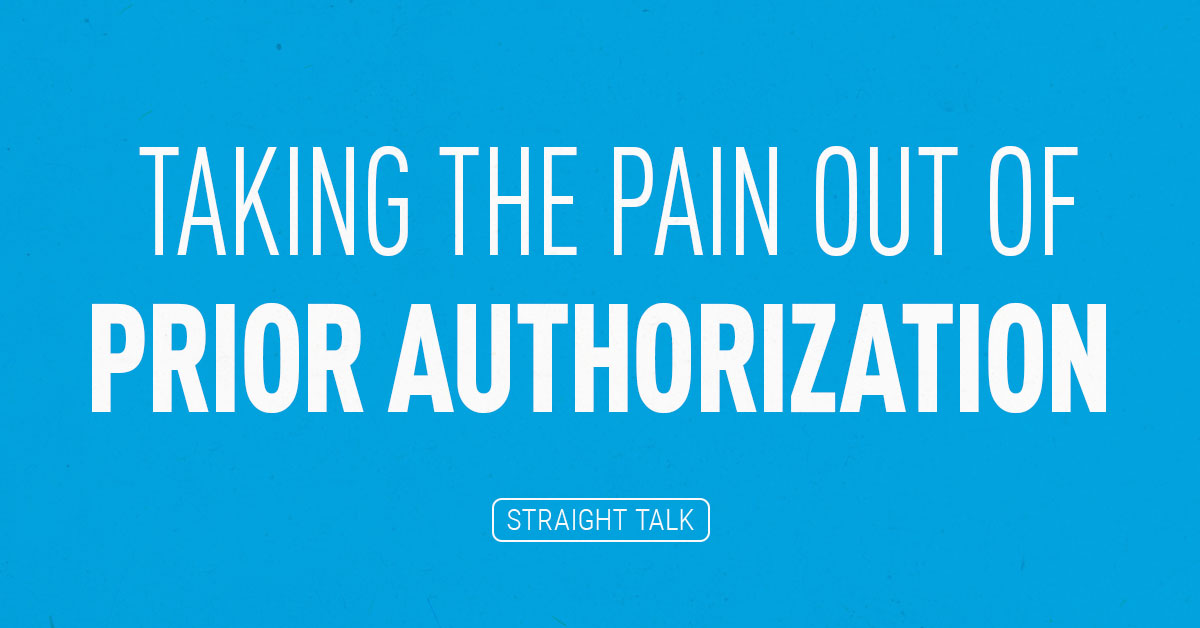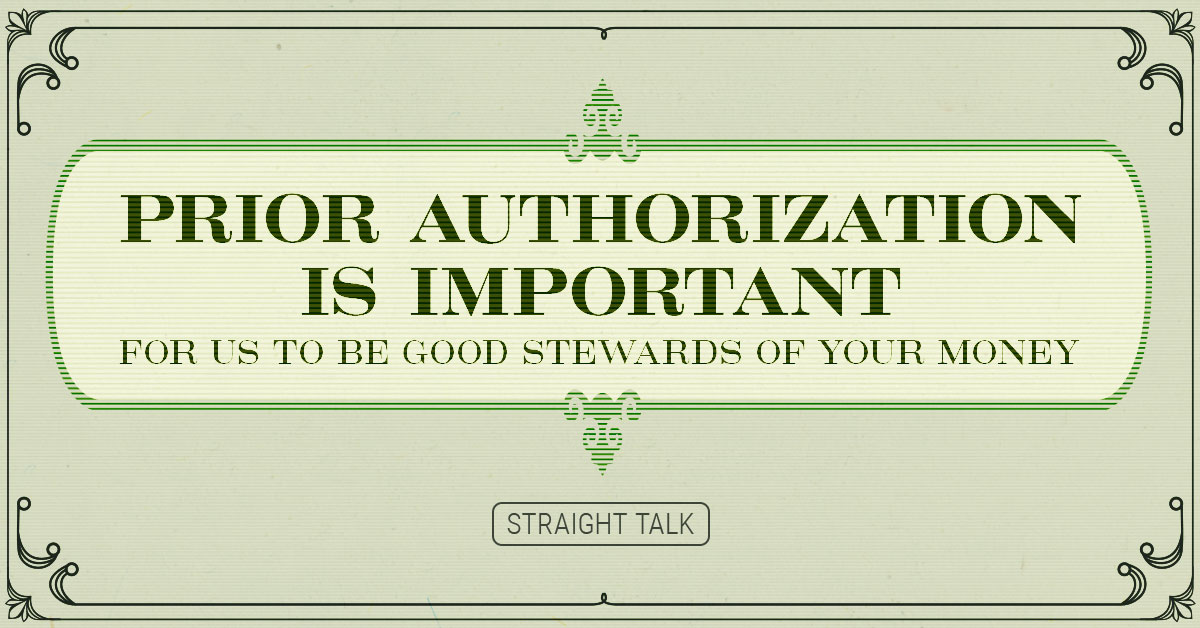In our quest here at Blue Cross to improve the health and lives of all Louisianans, we have worked very hard to educate folks about chronic conditions that can affect us all, especially in Louisiana:
- High blood pressure can lead to a stroke.
- High “bad” cholesterol can clog your arteries and damage your heart and brain.
- Increasing blood sugar and insulin resistance throughout your life can become full-blown diabetes.
- All made worse by being overweight and not exercising.
And the increasingly deadly combination of two or more of these conditions accounts for almost all cases of kidney failure, leading people to dialysis or onto the transplant list.
“A lot of times, people resist making changes they need to improve their physical health because of mental illness.”
I’ve written extensively about how taking your medicine the way your doctor tells you, combined with some tweaks to your diet and getting some exercise, can stave off these horrible outcomes, add years to your life and keep you out of the hospital. And how all of these things can make healthcare costs actually go down.
But, as with any big changes, there are barriers to people doing the right thing. Identifying those and working through them is a critical part of improving your health and life. For example, I’ve told you about my personal struggles with my weight. We all have our challenges.
The Challenge of Mental Illness
Today, I want to address a challenge we don’t really talk about very much. But, it is a big deal, very big. A lot of times, people resist making changes they need to improve their physical health because of mental illness. How common is this?
Well, mental illness is a pretty big problem in Louisiana, made even worse because Clinical opinions say between 40 and 70% of people with mental illness never seek treatment! Or even worse, they self-medicate with alcohol or drugs to make themselves feel better in a way they think is more socially acceptable.
“Managing mental illness HAS TO COME FIRST if you want to help people improve their health and lives.”
According to the federal Substance Abuse and Mental Health Services Administration (SAMHSA), nearly 4%* of the people you meet and see on a daily basis here in Louisiana suffer from a serious mental illness. Or, to put it another way, that’s 190,000 of your friends and neighbors, enough people to fill the entire population of a city the size of Shreveport!
Also according to SAMHSA, 10% of the population has a major depressive episode every year. That’s 465,000 of our friends and neighbors who are taken completely out of the game for days and weeks on end every year. And only one-third of them ever seek treatment or counseling after that episode. Meaning more than 310,000 people in our state have a major depressive episode every year and never seek treatment for it. Horrible!
These episodes can be debilitating and dangerous for days or weeks on end. Much more dangerous for you than, say, a broken leg. I wonder how many people who broke a leg last year failed to seek treatment? I’m going to guess none.
I read some data today that bothered me even more. Did you know four out of every 25 kids in grades 9-12 gives serious thought to suicide every year? That means in a typical, large high school with 3,000 students, 480 of them are at risk to kill themselves in a given year? 480!!! Unacceptable!
I’m sorry folks, but we have GOT to do better than this.
Mental Illness, Physical Side Effects
A recent scholarly article tried to understand why people who have chronic conditions like high blood pressure or diabetes are much less likely to take any steps to improve their health, such as taking their medicine or changing their diet, if their depression is not managed first.
Did you catch that? FIRST. Managing mental illness HAS TO COME FIRST if you want to help people improve their health and lives.
The last time you went to your primary care doctor, did you get screened for depression? Did you get a referral to a mental health professional? Did your insurance company (including Blue Cross!) explain your mental health benefits to you? Does your doctor refuse to refill your meds if you miss an appointment? Including your anti-depressants?
Harvard studies have shown that the most common reasons people have long-term depression are not well understood, certainly nowhere near with the knowledge and certainty we understand other physical conditions. Typically, depression involves the way our brains process certain hormones like serotonin. Ideally, your body produces enough serotonin, and your brain consumes it at a balanced rate that keeps your level high enough for you to maintain a nice, even mood all the time.
“Can’t we finally, now that it’s 2017, agree that mental illness is just an illness that needs to be treated like any other condition?”
But this balance can be thrown out of whack by a variety of things like stress, lack of sunshine or exercise, or even your own genetic makeup making you more likely to suffer from depression. Things happening around you can also trigger depression if you aren’t already out of balance. A recent study from the American Diabetes Association really nails it for me:
These findings… suggest that even low levels of depressive symptomatology are associated with nonadherence to important aspects of diabetes self-care. Interventions aimed at alleviating depressive symptoms, which are quite common, could result in significant improvements in diabetes self-care.
Gonzalez, Jeffrey S., et al.
Or to put it Straight, depressed people who aren’t getting treatment don’t take care of themselves in other important areas, like taking their diabetes, cholesterol or blood pressure medicines. So we can conclude that untreated depression in a person who has other health conditions puts them at higher risk for heart attacks, strokes, kidney failure and a host of other things. Again, we must manage mental health FIRST.
How Do We Focus on Mental Health?
Congress is already on board. In 2008, the Mental Health Parity and Addiction Equity Act (MHPAEA) and the Affordable Care Act, building on older protections, required individual health insurance and small group plans to cover all mental health services at exactly the same cost sharing as any other medical service, including pharmacy benefits.
When large companies choose to cover mental and behavioral health events, they are required by law to make that coverage equivalent. Medicaid and Medicare have extensive mental health services coverage. In other words, if you have any sort of healthcare insurance, you probably have the coverage you need to get help when these horrible illnesses or events strike. Before these laws, cost was the major barrier cited when people asked why they didn’t get treatment.
The other top reason was one we all control: The social stigma of mental illness.
Can’t we finally, now that it’s 2017, agree that mental illness is just an illness that needs to be treated like any other condition? I don’t think less of someone because he or she has cancer, diabetes or kidney disease, so why on earth would I change my opinion of someone just because he or she has a different type of disease?
The time for these stigmas is long past. We deserve to give our 190,000 friends, neighbors and family members all the love and support we can to help them deal with these debilitating conditions and make sure we are not judging them or allowing discrimination against them. Who knows, one of the 465,000 of us who will have a major depressive episode next year might be you. Or me!
You wanted it Straight. You got it.
*Behavioral Health Barometer, Louisiana, 2014, page 9




Leave a Reply